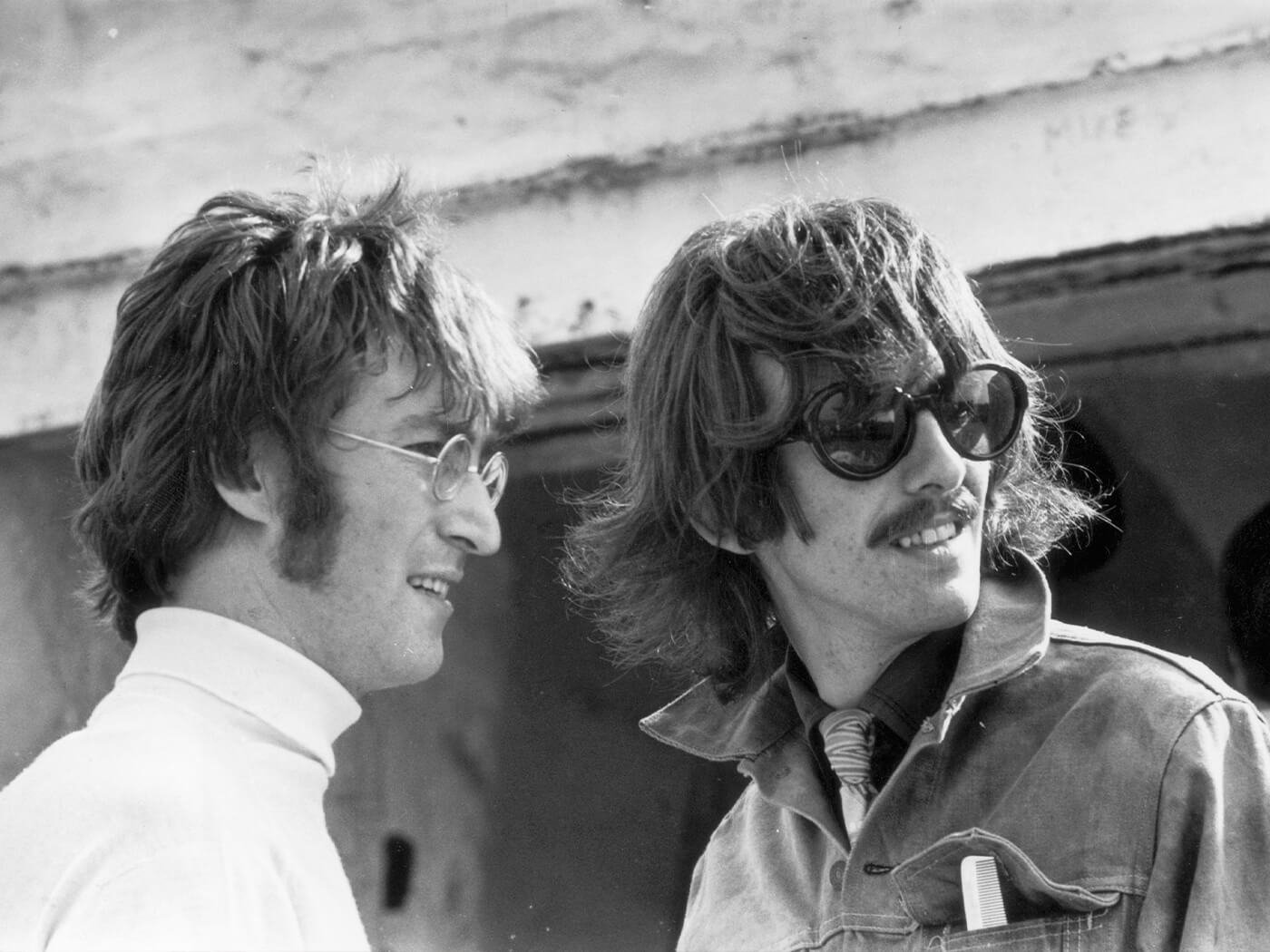In the intricate web of collaborations within The Beatles, the focal point often revolved around the enduring friendship between John Lennon and Paul McCartney. While each member played a pivotal role in shaping the band into the musical legends they are today, the dynamic duo of songwriters at the core, Lennon and McCartney, transformed them from a promising garage band in Liverpool into iconic rock legends. Their creative symbiosis continually propelled them forward, pushing the boundaries of their musical exploration.
Despite the tendency to marginalize George Harrison within the band, Lennon inadvertently played a key role in giving him one of his biggest hits. Lennon’s role as a musical elder brother to the younger Harrison, especially in the early days, fostered a protective spirit. Lennon encouraged Harrison to step out of his comfort zone by crafting songs for him to sing, exemplified by ‘I’m Happy Just To Dance With You’ from A Hard Day’s Night.
As Lennon crafted his masterpieces, Harrison embarked on refining his songwriting skills by creating original material. Unlike Lennon and McCartney, who frequently collaborated, Harrison was often left to his own devices, immersing himself in a solitary quest for the right words.
While the band took pride in showcasing any of Harrison’s compositions, Lennon occasionally found assisting him to be a task. During the recording of Revolver, Lennon recalled his annoyance when Harrison sought help finishing the lyrics to ‘Taxman.’ Though begrudgingly accepting the request, Lennon contributed different lines for the bridge.
As the 1960s drew to a close, Harrison emerged as a formidable songwriter, penning tracks that rivaled those of Lennon and McCartney. During the Abbey Road sessions, ‘Something’ and ‘Here Comes the Sun’ became landmark tracks, overshadowing many of the contributions from Lennon and McCartney.
Simultaneously, Harrison ventured into his first solo album, conceiving the chords and melodic structure for ‘All Things Must Pass.’ Although he presented the foundational elements during the Let It Be sessions, the song only fell into place after Lennon suggested a subtle lyric change. In a moment captured in the documentary Get Back, Lennon steered Harrison towards the line “a mind can blow those clouds away,” infusing a touch of psychedelia.
While ‘All Things Must Pass’ underwent further stylistic and structural changes before landing on the eponymous album, Lennon’s influence lingered in the lyrics, enriching a song that encapsulated the idea of everything transitioning into a new cycle. In a reciprocal gesture, Harrison later contributed to Lennon’s Imagine project post-Beatles, underscoring the unspoken support that existed within the band. Lennon, in assisting his bandmate, might not have fully grasped that he was witnessing Harrison on the brink of his songwriting zenith.
